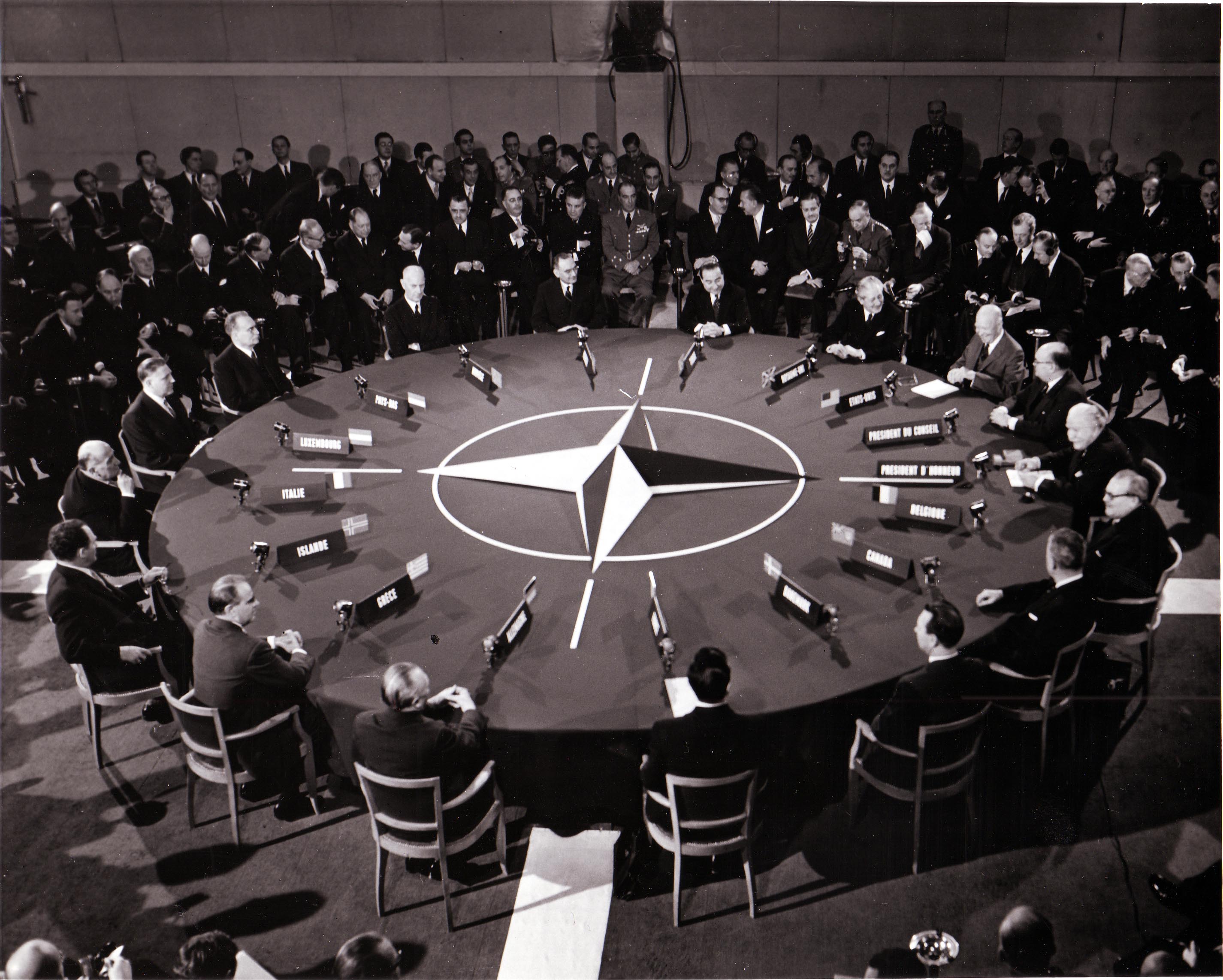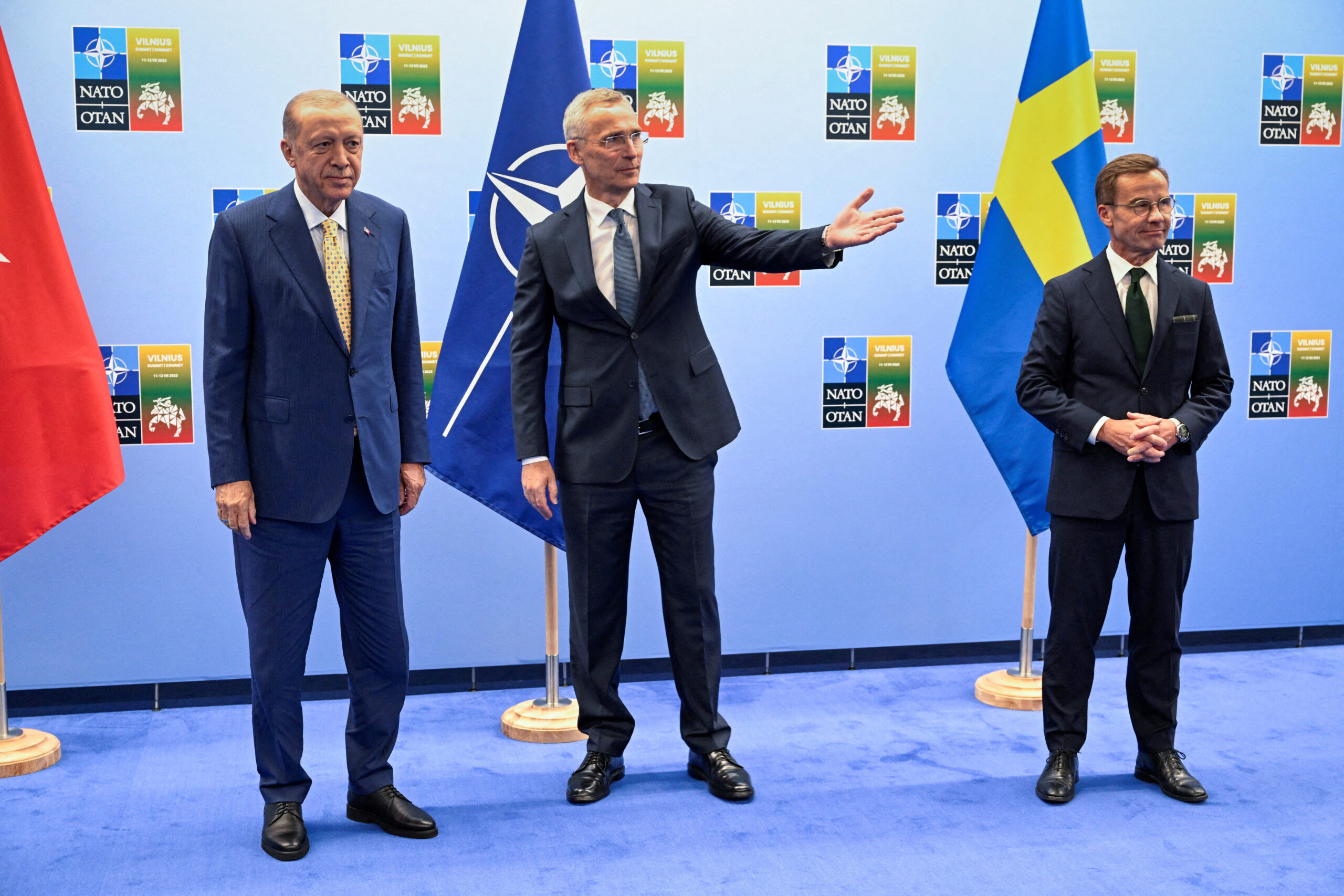| Key Differences | NATO Alliance | United States Role |
|---|---|---|
| Formation | 1949 | Founding member |
| Purpose | Collective defense | Primary contributor |
| Membership | 30 countries | Permanent member |
Let's delve into the main article topics:
FAQ
This FAQ section provides answers to frequently asked questions about the role of the United States within the NATO Alliance: United States Role And Commitment.

NATO plans biggest exercise since 2002 to counter Islamic State | Klara - Source klarabudapost.com
Question 1: What is the primary role of the United States within NATO?
The United States serves as the leading military contributor to NATO, providing substantial financial, military, and diplomatic support. The US also plays a crucial role in maintaining the Alliance's political cohesion and strategic direction.
Question 2: What are the key commitments made by the United States to NATO?
The US has committed to providing military forces for the Alliance's collective defense, contributing financially to NATO operations and budgets, and participating actively in NATO's political decision-making processes.
Question 3: How does the United States contribute to NATO's military capabilities?
The US maintains significant military forces in Europe, including land, air, and naval assets. The US also provides intelligence, surveillance, and reconnaissance capabilities, as well as logistical and medical support.
Question 4: What are the benefits of the United States' involvement in NATO?
US involvement in NATO strengthens the Alliance's deterrence and defense capabilities, promoting stability and security in Europe and beyond. The US also benefits from NATO's collective defense guarantee and the opportunity to shape the Alliance's strategic direction.
Question 5: How does the United States balance its commitments to NATO with its other global responsibilities?
The US prioritizes its NATO commitments while simultaneously meeting its global responsibilities. The US maintains a robust military presence in both Europe and the Asia-Pacific region, and it works closely with its allies and partners to address emerging security challenges.
Question 6: What is the future of the United States' role in NATO?
The United States remains firmly committed to NATO. The US recognizes the Alliance's importance for European and global security and will continue to play a leading role in ensuring its strength and effectiveness.
In conclusion, the United States plays a vital role in NATO, providing essential military, financial, and diplomatic support. The US is a key contributor to the Alliance's collective defense, and its commitment to NATO remains strong.
Transition to the next article section...
Tips
Consider these insights to enhance understanding:
Tip 1: Recognize the Significance of NATO's Establishment
NATO, formed in 1949, stands as a testament to the determination of nations to safeguard their collective security amidst postwar threats. Its principles, including collective defense and democratic values, have served as its bedrock.
Tip 2: Understand the US's Leading Role
The United States has assumed a pivotal role within NATO, providing significant military contributions and strategic guidance. Its commitment to the Alliance has remained steadfast throughout the decades.
Tip 3: Appreciate NATO's Evolution Beyond Military Defense
NATO has expanded its focus beyond traditional military defense to address contemporary challenges such as terrorism, cyber threats, and hybrid warfare. Its adaptability underscores its relevance in a rapidly evolving security landscape.
Tip 4: Recognize NATO's Expansion and Global Reach
NATO has expanded its membership over the years, reinforcing its presence across Europe and beyond. Its partnerships with non-member nations further extend its global reach and influence.
Tip 5: Value NATO's Role in Conflict Resolution
NATO has played a significant role in conflict resolution, intervening in crises such as the Kosovo War and the Libyan Civil War. Its peacekeeping and peacebuilding operations demonstrate its commitment to stability and conflict prevention.
Tip 6: Acknowledge NATO's Contributions to International Security
NATO's contributions to international security are far-reaching, fostering cooperation, enhancing capabilities, and promoting democratic values. Its influence extends beyond its member nations, contributing to a more secure and stable global order.

The U.S. Intelligence Playbook to Expose Russia’s Ukraine War Plans - Source www.nytimes.com
Tip 7: Stay Informed about NATO's Ongoing Developments
NATO continues to adapt and evolve, responding to emerging threats and challenges. Staying informed about its ongoing developments ensures a comprehensive understanding of its role and relevance in the contemporary security environment.
Tip 8: Utilize NATO Resources for Further Exploration
NATO provides a wealth of resources for those seeking to delve deeper into its history, structure, and activities. These resources can enhance knowledge and foster a deeper appreciation for the Alliance's contributions to global security.
These tips provide a starting point for understanding the NATO Alliance, the US's role, and its continued commitment to security and stability.
The relationship between the United States and NATO remains a cornerstone of global security. By recognizing its significance, understanding its evolution, and staying informed about its ongoing developments, individuals can gain a comprehensive perspective on the Alliance's invaluable role in safeguarding international peace and security.
NATO Alliance: United States Role And Commitment
The role and commitment of the United States within the NATO alliance are multifaceted, encompassing political, military, and economic dimensions. These key aspects shape the alliance's strategic posture, deterrence capabilities, and collective defense mechanisms.
- Security Guarantee: Article 5 of the NATO treaty commits all members to mutual defense, ensuring collective security.
- Military Leadership: The United States provides military leadership, contributing forces and capabilities to NATO operations.
- Nuclear Deterrence: US nuclear weapons play a crucial role in deterring potential adversaries and safeguarding NATO members.
- Economic Contribution: The United States is the largest contributor to NATO's budget, supporting the alliance's operations and infrastructure.
- Political Consensus: The United States actively participates in NATO's political decision-making processes, shaping consensus and aligning member strategies.
- Transatlantic Bridge: NATO serves as a transatlantic bridge between North America and Europe, fostering cooperation and maintaining stability.
These aspects collectively demonstrate the United States' unwavering commitment to NATO and the importance of its role within the alliance. The security guarantee provided by Article 5 has been a cornerstone of NATO's deterrence posture, while US military leadership ensures the alliance's ability to respond effectively to threats. The economic contributions and political involvement of the United States support NATO's operational capabilities and strategic cohesion. Overall, the United States' role and commitment are essential for maintaining the strength and effectiveness of the NATO alliance.
NATO Alliance: United States Role And Commitment
The United States has played a pivotal role in the North Atlantic Treaty Organization (NATO) since its inception in 1949. As a founding member, the US has consistently demonstrated its commitment to the alliance, providing military, political, and financial support. The alliance is based on the principle of collective defense, which means that an attack on one member state is considered an attack on all. The US has been a major contributor to NATO's military capabilities, providing troops, ships, and aircraft to deter and defend against potential threats. The US has also been a strong advocate for NATO enlargement, which has seen the alliance expand from 12 to 30 member states since the end of the Cold War.

Experts react: How close is Sweden to joining NATO after the Turkish - Source www.atlanticcouncil.org
The US commitment to NATO is based on a number of factors, including shared values, common interests, and a recognition of the importance of a strong and united Europe. The US and its NATO allies share a commitment to democracy, human rights, and the rule of law. They also have a common interest in maintaining peace and stability in Europe and beyond. A strong NATO is seen as essential for deterring and defending against potential threats, such as Russian aggression or terrorism.
The US commitment to NATO is likely to continue in the years to come. The alliance remains an important part of the US foreign policy and a key pillar of European security. The US will continue to play a leading role in NATO, providing military, political, and financial support to the alliance.
Table: Key Points of US Role and Commitment to NATO
| Key Point | Explanation |
|---|---|
| Collective Defense | An attack on one member state is considered an attack on all. |
| Military Contributions | US provides troops, ships, and aircraft to deter and defend against threats. |
| Political Support | US advocates for NATO enlargement and strengthens its political cohesion. |
| Financial Commitment | US provides significant funding to support NATO's operations and capabilities. |
Conclusion
The US commitment to NATO is a cornerstone of European security and a testament to the shared values and interests of the US and its allies. The alliance has played a vital role in maintaining peace and stability in Europe for over 70 years, and the US will continue to play a leading role in NATO in the years to come.
NATO remains a key pillar of US foreign policy and a vital part of the US commitment to European security. The alliance is a force for good in the world, and the US will continue to support it.